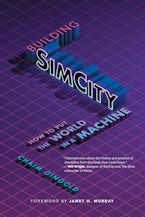'Art is just one professional field that is trying to grapple with the preservation of digital and new media material,' says Richard Rinehart, director of the Samek Art Gallery at Bucknell University. With fellow digi-trailblazer Jon Ippolito, Rinehart has penned what will be the first book dedicated to the subject of conserving new media art, Re-collection: New Media, Art, and Social Memory. It is due to be released by MIT Press in the spring.
ARTnews
Three specters haunt the digital cabinets of the cultural heritage sector: death by institution, death by law, death by technology. This book explains our options. Read it if you want to prevail.
Bruce Sterling
This book will arrive like a bombshell in the twin citadels of art museums and conservation departments. The incredibly interesting and compelling narrative explains the need to rethink conservation and the very idea of the artwork.
John G. Hanhardt, Consulting Senior Curator for Film and Media Arts, Smithsonian American Art Museum, and former curator at the Guggenheim and Whitney Museums
With years of experience in curation, preservation, art making, and writing, Rinehart and Ippolito have written their definitive statement on 'variable media,' that is, any kind of artifact designed (or doomed) to change over time. Materials decompose, technologies grow obsolete, and software stops running. But far from simply bemoaning the entropy of our times, this book offers a bold and inspiring manifesto on how best to care for the art and culture of the digital age.
Alexander R. Galloway, author of The Interface Effect
For almost 20 years, there has been debate and speculation about a potential digital dark ages, when we lose our collective memory through a plague of digital depredations. Re-collection is not just a clear-headed summary of the issues. Ippolito and Rinehart have written a manifesto and a virtual Swiss Army knife of what should and can be done to prevent such degradation. Curators, conservators, archivists, collection managers, programmers, lawyers, creators, and dealers alike will benefit and hence benefit the future by committing these principles and lessons to memory.
Steve Dietz, Founding Curator, New Media Initiatives, Walker Art Center
As curators, Ippolito's and Rinehart's sense of passion for saving digital art and our social memory is evident in Re-Collection and their book is a manifesto for museum professionals who are feeling the anxieties over how to best hold on to a sense of our collective, cultural heritage in the digital age.
Hyperrhiz
Part informational overview, part professional manual, and part preliminary theoretical dialogue, this useful, thought-provoking book collates and calibrates information about the emergent field of cultural technology preservation.
Choice
Although the focus of the book is on new media art, it is of interest for anybody who deals with the preservation of non-traditional media in museums – which also include digital exhibitions.
Uncommon Culture












